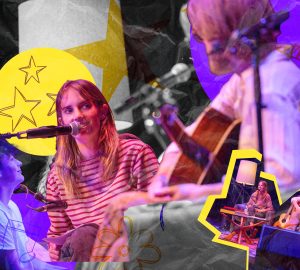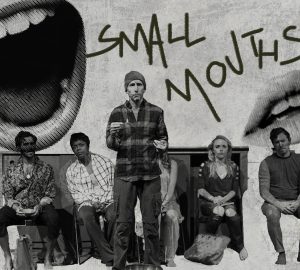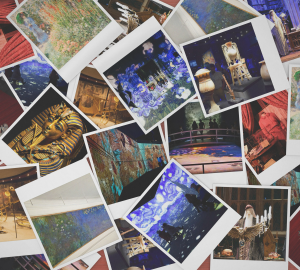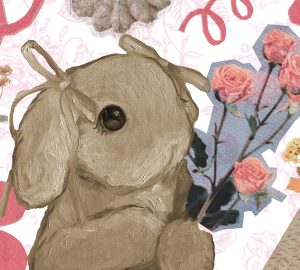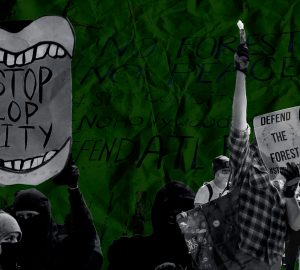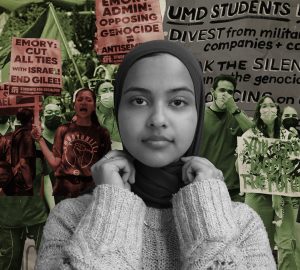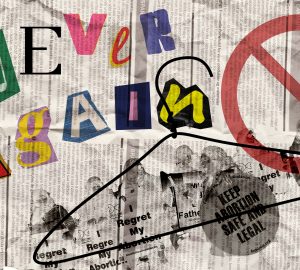The Writer’s Corner features poetry, essays, short stories, satire and various fiction and non-fiction from SCAD Atlanta students. To submit your own work for the Writer’s Corner, email features@scadconnector.com.

‘A Poem for Gabriel’ by Alejandro Bastidas
June 6, 1944
I stare ahead at a promise of uncertainty. Anxious waves drown the tremor of teeth and suppressed lamentations, carrying our boat towards a coast with its open wounds on display like so many others across the continent. Nick stands next to me with his rifle clutched tight to his chest. He drops one arm and it graces mine. Is that a call? His skin feels warm despite the sweeping winds of Normandy that speak the language of cold. While everyone else keeps their eyes locked on the coast, I slip my hand into Nick’s own, our fingers merged in one tight squeeze. I should tell Nick that I love him. Those words have never left my mouth because I’ve always been afraid to say them. And that’s coming from a person who shoots faceless humans in the dark for a living and has grown used to the roar of tanks blasting entire towns to cinders. But I’ve always been a coward when it comes to love.
Minutes or hours pass, I can’t be sure. Nick removes his hand from mine and reaches for something inside his pocket. A little scruffy paper that he folds over in a rush and hands it over to me.
“Give this to my brother,” he says, already deciding his own fate. “Find him for me.”
“You will do it yourself.”
“Maybe. I have a copy with me still. I just want to be sure that he reads that, one way or another.”
I say nothing. It isn’t like him to give up. He is the only reason I lived through Dunkirk. He rescued me from the pitfalls that shred the minds of men to frail ribbons, in those dark and lonely places so easily created by war, where no light enters and every color loses its charm. Nick showed me the courage of wildflowers growing by the edges of a road, wrinkled and bent backwards over the grass, forever resilient. That was a lifetime ago.
But where is that hopeful man today?
Doesn’t he believe in Churchill and his plans, like the rest of us? The Prime Minister says this will be the greatest invasion in history. Operation Overlord. An act of retribution for all the bombings in London, the naval battles in the Atlantic, and the thousands butchered on the frontlines. I can’t blame Nick for being afraid.
“Remember our trip to Dover?” I ask, trying to distract him from what rages through the mind of every soldier.
Saying the words also makes meremember. Life after Dunkirk. It was just the two of us and we didn’t care if the world was big or tiny or mad, because we lived inside a crystal ball like the ones they sell at the carnivals, where it snows if you shake them hard enough but the houses still stand and their colors are rich and immortal. We had that once. But the enchantment lost its glimmer as we realized it wasn’t fair for us to live like that, two men together, when so many others had been hunted down for trying to do the same.
The deep blare of alarms shatters the silence.
The boat ahead of us is the catalyst. The moment it lands, the coast of Normandy roars to life and the Germans suffocate the triggers of their machine guns like they were born to do it. But I know they weren’t. Not really. Part of me knows there must be more than one soldier up there who just gave a wrinkled note to one of his friends, trembling in fear, asking for the ultimate favor. Perhaps in that imaginary note there is a confession, one of love and tragedy, in which a young man reveals the true desires of his noble heart, hidden for years, after seeing all the homosexuals in Germany cast out from society in a one-way train.
Pieces of lead ring against the hulls of every boat at sea, men cry out in fear and dive for cover or die on their posts. The boat shudders as it hits sand and the ramps are lowered to allow our advance. I don’t need to see it to know that thousands of soldiers just like me died in the second it took me to aim my rifle. There’s fifty kilometers of coast to invade, an unknowable number of Germans defending their conquered territory.
I know Nick reenlisted because his brother moved to France before the war. I’ve heard him speak to Gabriel in his sleep. Now I hear the cliffs of Normandy collapse as they’re struck by missiles from the distant frigates and waves of bullets from the RAF. It becomes impossible to walk across a maze of fallen bodies and cracked helmets. A grenade lands next to my feet and I’m forced to dive to the side, the explosion killing the man behind me who wasn’t as fast. Curtains of fog block my view and there’s sand in my mouth, an ache in my bones from the rough landing and a loss of orientation that strikes me with dread. I stagger to my feet and lose sight of my squad. Lose sight of Nick.
I want to scream his name, but there are Germans coming.
The sound of their language snaps me back to my senses and reminds me of what I’m doing. Aim, fire, advance. My rifle shudders as I pull the trigger but then I wonder if I’ve been shot, but it’s just the pounding of my heart against my ribcage. Loud like the bombings in the distance. I run out of bullets and pick up the rifle of a fallen man instead of reloading mine. It’s almost full. Some men don’t even get the chance to fight. I do not want to die in a place like this. There’s a German blocking my way, staring up at the sky as a plane of the Luftwaffe clashes with one of ours. There are no clouds here. Just smoke rising from the earth to swallow the sun. I slam the butt of my rifle into man’s head and hear the skull crack. I need to save bullets. Another strike when he’s down puts him out of his misery. Its either him or me here.
All we have to defend ourselves with is the primal instinct to survive. There’s no line dividing man and beast anymore. I’d stomped Nick’s corpse twelve meters behind and didn’t even notice. In my head he was close, fighting for me, for his brother. I was wrong.
June 9, 1944
I’m not aware of the roads that stretch beneath my feet. It isn’t easy to walk with a limp, with the weight of battle straining my bones, the reek of charred men etched onto my skin, and the overwhelming absence of sound because of my ruined ears.
They said we won but I can’t believe it. I lost myself when I lost you, Nick. I want to go back to the shores of Normandy and find you, bury you, or just say goodbye with a kiss on your brow. I know it won’t be possible because there are more bodies than grains of sand in that place. I just hold on to the sensation of your hand on mine, and use it as an anchor to stay sane. To remember the promise I made you.
I never told you I reenlisted to follow you. It was never about England.
The paper is still folded in my pocket, heavy but weightless all the same. It is a fragment of yourself, tangible and candid, but not meant for me. Then what ismeant for me? Your name has taken over my thoughts. The battle is over but it rages on, Nick. How am I to do this alone?
I grabbed a train to Auxerre after being released from the infirmary, determined to find the red house your brother built on top of a hill. Remember when you told me about it? I do. Your eyes always glistened when you talked about your family. The house is not as beautiful in person but I still cherish the fantasy you told me. There are lilies by the porch and wildflowers running free across the hills.
Dry tears mark my face as I knock on the door. You greet me with a confused smile. A younger version of you, at least. A cruel illusion that makes it harder to breathe and speak when you—no, he—asks who I am.
“I knew your brother,” I say and reach for the paper you gave me. “He wanted you to have this.”
It feels like letting go of your touch, your soul, your final connection to me. It feels like Normandy all over again. Only this time I am the one who dies.
Gabriel unfolds the paper and his hands tremble as he reads it—as he realizes he will never see you again.
“He wrote me a poem,” Gabriel whispers. “About how to live a happily. Short and simple, but clear. He even added an example from his own life.”
I don’t know how to tell Gabriel I don’t understand how happiness works anymore. I sink into the images of Dunkirk that you helped me bury. Only this time I don’t climb back to the surface, Nick.
“Are you Charles?” he asks, eyes still studying the poem.
“Yes,” I say, not knowing what to expect as I never read the paper.
“Nick said he was happy with you.”



